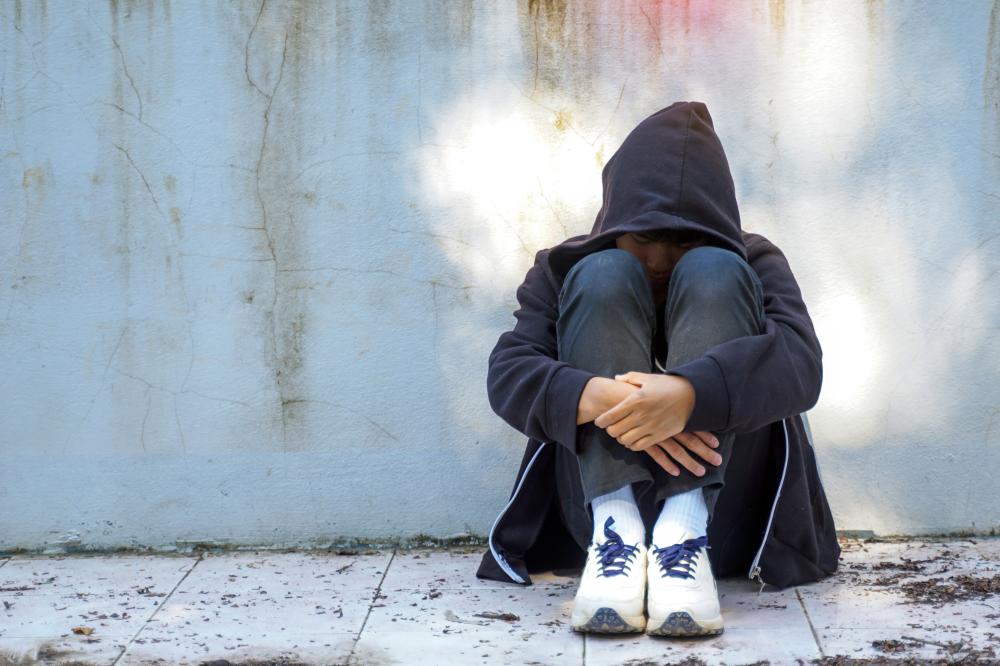
The Hidden Struggles of Suicidal Teens
As someone who has spent over two decades guiding families through the turbulent waters of mental health, the topic of Treatment for Suicidal Teens is one that requires both sensitivity and strategy. The battle many teens face with suicidality often remains unseen, cloaked in the pressures of adolescence and misunderstood as typical teenage angst. Yet, this is a critical issue, and understanding the underlying struggles can be lifesaving.
Many teens who grapple with suicidal thoughts experience overwhelming feelings of worthlessness, hopelessness, and despair. These feelings can stem from various sources, such as social pressures, academic stress, or past trauma. It’s important to recognize that these are not just fleeting emotions but persistent challenges that require attention and care.
At Solace Treatment Center, we approach each case with the understanding that no two teens are the same. Our comprehensive evaluations help uncover the root causes of distress, allowing us to tailor care that effectively addresses each individual’s needs. This personalized care is essential in building resilience and hope in teens who feel they are at the end of their ropes.
Building an Effective Treatment for Suicidal Teens
An effective Treatment for Suicidal Teens involves several critical components. First, establishing a safe and open line of communication is crucial. Teens must feel they can speak about their feelings without judgment or fear of rejection. Often, this involves building trust over time, an area where experienced professionals can be especially helpful.
Next, introducing therapeutic interventions that focus on cognitive behavioral therapy (CBT) or dialectical behavior therapy (DBT) has proven effective. At Solace Treatment Center, we integrate these therapies as part of a broader treatment plan, leveraging their strengths in reframing negative thought patterns and enhancing emotional regulation.
Moreover, family involvement is a cornerstone of our approach. We recognize that healing is a collective effort, and when families are engaged, the likelihood of a teen’s recovery strengthens significantly. Education and support for family members are integral, helping parents and siblings navigate their emotions and roles within the treatment process.
What Qualifies as a Treatment for Suicidal Teens Emergency?
Recognizing the signs of a suicidal crisis in teens is crucial. Immediate intervention is necessary when a teen expresses suicidal ideation with a plan, has access to means, or shows drastic mood swings, sudden calmness, or goodbye gestures. In such situations, contacting a mental health professional or emergency services can be life-saving.
While preventative care is essential, knowing how to act in a crisis is just as vital. Here’s a straightforward process for parents and caregivers:
- Stay calm and express concern directly to your teen.
- Remove access to any means of self-harm.
- Contact a mental health professional immediately for guidance.
- If the situation is severe, do not hesitate to call emergency services.
At Solace Treatment Center, we provide 24/7 support for emergencies, ensuring that help is always available when it’s needed the most.
Exploring New Frontiers in Treatment for Suicidal Teens
Our industry has seen some exciting developments recently concerning the Treatment for Suicidal Teens. One promising area is the integration of technology in therapy. Virtual reality, for example, has shown potential in alleviating anxiety and depression, offering teens an engaging way to face their fears in a controlled environment.
Additionally, peer support programs can be invaluable. Teens often feel more at ease discussing their issues with peers who have shared experiences rather than adults. Our programs at Solace Treatment Center include peer-led activities, creating a sense of belonging and understanding among participants.
Lastly, mindfulness and holistic treatments are gaining traction. Practices like yoga and meditation can enhance traditional therapeutic methods by helping teens develop coping skills and resilience. This combined approach not only alleviates symptoms but also empowers teens to manage their mental health proactively.
How Can Communities Support the Treatment for Suicidal Teens?
Communities play an essential role in supporting Treatment for Suicidal Teens. When a community rallies around its youth, it reduces stigma and fosters an environment where mental health is prioritized and openly discussed. Support groups, school programs, and outreach initiatives can all contribute to a network of care.
Engagement at a local level, such as mental health awareness campaigns and workshops for parents and educators, helps build a resilient framework for support. At Solace Treatment Center, we actively partner with local organizations to extend our reach, ensuring that help is accessible and visible.
- Organize and participate in community mental health forums.
- Encourage schools to implement evidence-based mental health curricula.
- Support legislation that funds youth mental health services.
By working together, communities can become beacons of hope and healing, paving the path for teens to not only recover but to thrive.
What Are the First Steps in Addressing Suicidal Thoughts in Teens?
When teens express suicidal thoughts, it can be an incredibly challenging time for both them and their families. At Solace Treatment Center, we emphasize the importance of opening up a dialogue. The first step is to listen without judgment. Teens need to feel safe discussing their feelings to reduce the stigma that can accompany their struggles. Engaging them compassionately and seeking professional support early is critical. The more we talk about it, the more we can dismantle misconceptions that suicidal thoughts are simply attention-seeking behaviors, which they rarely are. Instead, they are signals for help that need to be addressed with care and urgency.
Consider asking your teen what they need right now and how you can support them. This not only shows empathy but helps in understanding their immediate needs.
How Do Family Involvement and Therapy Work Together in Treatment?
Family involvement is a cornerstone of our approach at Solace Treatment Center because healing doesn’t happen in isolation. Therapy is more effective when family members participate, offering a robust support system around the teen. We use family therapy sessions to educate parents and siblings about the challenges their loved ones face. This shared understanding fosters an environment where the teen feels truly supported, not just by their therapists but by their family as well. It’s rather like building a net; the more connections there are, the safer and more supportive it becomes.
Encourage family members to share their own challenges during therapy sessions, promoting open dialogue and mutual support.
What Are Some Misconceptions About Suicidal Teens?
A prevalent misconception is that teens who talk about suicide are merely seeking attention and are not at risk. This is a dangerous myth. At Solace Treatment Center, we understand that every mention of suicide must be taken seriously. Teens often feel immense pressure and see no other escape. Another misconception is that suicidal thoughts are a permanent state of mind; in fact, with the right support and treatment, teens can move beyond these dark thoughts. Ignoring these cries for help can mean missing opportunities for early intervention and support.
If you’re unsure how to respond, reach out to mental health professionals for guidance on how to talk to your teen about their feelings.
Are There Innovative Treatments for Suicidal Teens?
Indeed, there are several innovative approaches that are making strides in treatment. At Solace Treatment Center, we’ve begun integrating technology, such as virtual reality, to provide engaging therapeutic experiences. This tech can help teens confront fears and anxieties in a controlled setting. Additionally, peer support programs are increasingly valuable. These allow teens to connect with others who understand their experiences firsthand. Such programs can create a sense of community and belonging, essential for recovery.
Explore mindfulness practices like yoga or meditation at home, which can complement professional treatment and help reduce stress.
What Role Does the Community Play in Supporting Suicidal Teens?
Communities have a significant role in providing a support network for suicidal teens. By fostering open discussions on mental health, communities can reduce the stigma and create an environment where teens feel safe seeking help. We at Solace Treatment Center partner with local organizations to promote mental health awareness and deliver workshops for both parents and educators. This kind of community involvement can serve as a lifeline, offering resources and support outside of clinical settings. Community initiatives like support groups and school programs ensure that teens receive consistent encouragement and care.
Consider joining a local mental health awareness initiative to make a difference in your community and learn more about supporting teens.
How Can Parents Recognize an Emergency Situation in Suicidal Teens?
Recognizing an emergency situation is crucial for timely intervention. Parents should be alert to signs such as sudden mood changes, expressions of hopelessness, or any discussion of a suicide plan. If a teen is displaying these signs, it’s imperative to act swiftly. At Solace Treatment Center, we advise parents to remain calm and confront the situation directly, expressing concern and empathy. Removing any means of self-harm and contacting mental health professionals without delay are critical steps. Our center offers 24/7 support for such emergencies, ensuring that help is always at hand.
Encourage open communication regularly, so that teens feel comfortable coming to you before a crisis escalates.



